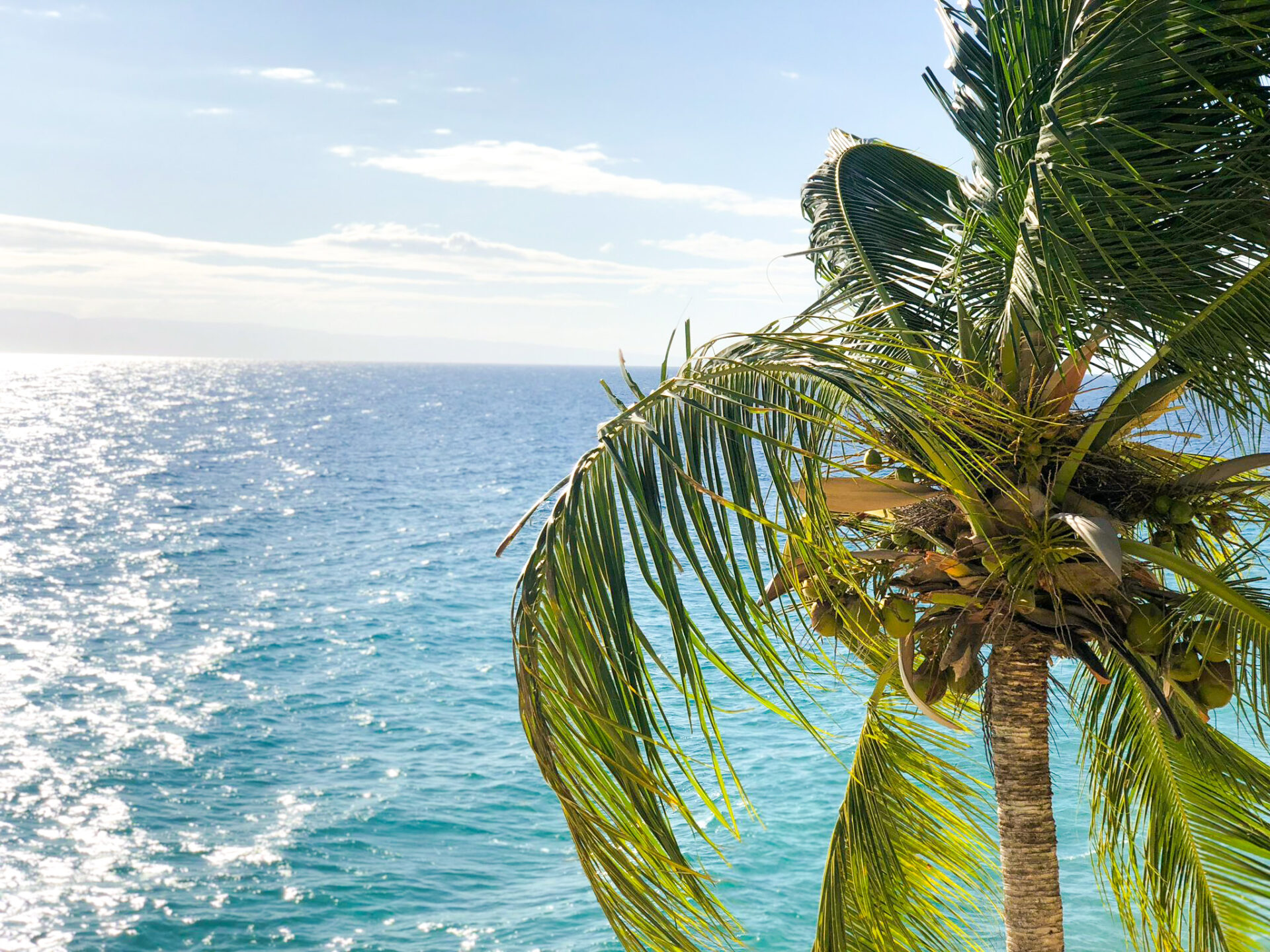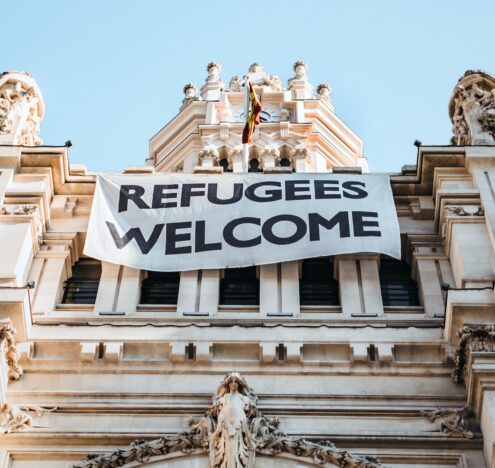7 fevrye, Feb. 7, has been a day ingrained in my brain for as long as I can remember. It is “Inauguration Day” in Haiti, the day that sets the tone for the upcoming year or, if fortune smiles, the next five. While schools and businesses shut down, adults brim with tension. However, we children would revel in our day-long escape, savoring soursop, cracking, and eating zanmann, playing with the freedom only naivety can provide, only half-aware of the weight the day carries.
Feb. 7, 2024, will mark seven years since the last free elections were held in Haiti — before the loss of President Jovenel Moise to a fate no ballot could predict — two years since the streets we once played in fell under the shadow of gang rule, and one year since I began pleading with my parents to seek a new beginning elsewhere. Over the past decades, the situation in Haiti has often been highlighted in the news or the radio: the sensationalism of the earthquake, Kanye West’s dancing in the streets of Cap Haitian, and some media reminders here and there that Haiti remains “the poorest country in the Western Hemisphere.”
However, there is a silence now, a haunting one. One that feels profound when you consider the global uproar and support for other nations. No hashtag activism has stuck, local or international riots get very little visibility and media exposure, every so often a tweet (X?) pierces through the quiet. The cries of Haitian media outlets seem muffled or just lost in oblivion amid the world’s chaos. Life in Haiti has forcibly adapted to the situation by becoming a living hell for most, and for others, it is business as usual. The cries of those who have lost their homes, their children, and their parents are left unheard.
Violence and Instability
Just a few days ago, gangs besieged yet another neighborhood, Pernier, near Pétion-Ville. The capital languishes under the siege of these so-called gangs and criminals — who are, in truth, the offspring of a society that has failed to provide the basics for life: education, food, and shelter. In the shadow of beachfront mansions and the razzle-dazzle of nightlife, a staggering 63% of the population find themselves crammed into shanties. Wouldn’t you be angry too?
Kidnappings have spiked by over 80% this past year, and so have the killings. Despite sanctions on small arms, guns continue to come in from the US and the Dominican Republic, while the media coverage flits past without pause, without probing questions or international outcry. This is the most violence and instability that Haiti has ever seen. People are left in deadly limbo, wondering, and praying for an intervention from anyone — a prayer everyone knows is a double-edged sword, after the chaos past international interventions have wrought — but that will be a problem for another time. Peace is needed now.
More and more people are forced to carry their lives in bundles, fleeing homes that now sit in the shadow of no-go zones once filled with the laughter of road trips to the beach, soccer camps, schools, and offices. Has anyone thought about those “Machann” we used to stop by on the side of the road to buy our favorite snacks? What happened to their children? Is it them behind the masks, demanding a slice of a pie that was never shared fairly?
How Did We Get Here?
Opinions on how Haiti found itself in its current state are as varied as the colors in a Port-au-Prince marketplace. The country has, for the past couple of years, been widely described as a failed state. One camp insists that Haiti’s destiny was sealed in ink on the independence debt, planting the seeds of economic strife before the nation could even toddle. Another faction points fingers at the US, citing a buffet of interventions — whether it is the heavy hand in politics, meddling in food markets, or the military occupation of 1915. They claim the imposition of a democratic model was more a one-size-fits-all for regional stability rather than a bespoke fit for Haiti’s unique values. However, let us not wander too far down that rabbit hole.
Viewing the current images of my country, it is as if the essence of my identity, the memories that have sculpted me, are being steadily erased.
A school of thought resonates with me, suggesting that the root cause is closer to home. It is an inside job. We are talking about a homegrown brew of challenges, where the ingredients include local leadership decisions (or lack thereof) and internal policies that have not always prioritized the long-term objectives. We have witnessed a parade of governments and political figures, all too often dancing to a five-year tune of self-interest rather than national progression. There is a growing disengagement among the youth, with the educated and capable opting out, citing self-preservation over societal contribution. Haiti is bleeding talent — doctors, lawyers, nurses, and even law enforcers are departing, taking their expertise with them, and leaving those behind to fend for themselves.
Schools have closed around Port-au-Prince due to the rise of insecurity. My Alma Mater has announced the closing of its doors due to a stray bullet hitting one of the windows — the same classroom to which I owe the ability to write this text. There is dire social danger in the closing of the schools, in the regression in the education system in a fast-moving world that does not care about education inequality, equal access to the internet, or the availability of teachers. Am I the only one freaking out?
The Haitian medical board has issued a desperate plea, noting the scarcity of doctors and the absence of teachers to train more doctors. Gheskio, a pivotal medical center providing care for HIV patients in now gang-dominated areas, has significantly cut its activities due to personal crisis — the co-director’s son has been kidnapped. Two months have passed, and still, there is silence. This could lead to major medical emergencies for people living with chronic conditions and add to the overall humanitarian emergency.
Meanwhile, the Biden administration’s “generous” humanitarian visas have gone unquestioned, whisking away over 120,000 of Haiti’s brightest. The impact on the country, the void left behind, remains unscrutinized. Why isn’t anyone asking what the end goal is here?
What will this look like in 10 to 15 years? Will those who have left return, enriched by experiences, ready to sow seeds of change? Or will they at least bear witness, advocate, defend, or perhaps … write? What happened to the voices of this generation? Where are the Jacques Roumain, Jean Price-Mars, or Frédéric Marcelin’s of a generation in desperate need of inspiration?
Deafening Silence
Is this it? Is this where Haiti goes to perish, in the silence of a society that has failed it? Amid it all, the silence of a government led by Ariel Henry, who has yet to offer a structural plan for security or future elections, is deafening.
Why are the violations of civil laws and the constitution that once inspired many to fight for freedom not being addressed? Haiti’s problems are not a novelty; nations like Rwanda, Singapore, South Africa and El Salvador have shown that transformation through commitment to an internal strategic development plan is possible. The blueprint for betterment exists, but who will answer the call for change and leadership? Or do we remain silent, continuing meaningful conversations only within the safety of our homes, hoping and wishing for a better Haiti?
Viewing the current images of my country, it is as if the essence of my identity, the memories that have sculpted me, are being steadily erased. Why does no voice rise in protest? Has the media tired of the same weary narrative of Haiti? Have we been relegated to oblivion? Will this essay also vanish into the internet’s abyss?
Does anyone else out there yearn for the Haiti of our memory — the beach weekends, the Sunday dinners, the road trips, the smoky savor of lambi boukanen by the sea, the unyielding warmth of our people, the smiles, the laughter of children, the gaiety of Kanaval, the smell of beignets in the streets, the inherent kindness that once defined us?
Can someone please talk about Haiti?





















